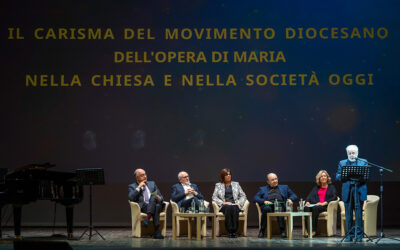One of the greatest sufferings for human beings is to feel worthless when faced with the realities of life, to accept that at times we cannot do anything. To be an instrument in God’s hands means to make ourselves available, rediscover our own value in letting someone else do something, and learn the art of entrusting ourselves to others. A bit of prudence As head of a department in my company, one day I noticed that my typically peaceful colleague had an aggressive attitude. When I invited him to talk, he confided in me his problems with his wife, who had turned out to be violent to the point of laying hands on him. She continually demanded more and more money from him. This was what was behind his working overtime. Since then, my colleague started phoning me outside work when things were going badly, certain that he would find a listening ear. However, when I realised that I had become a kind of safe haven for him, I felt the need to talk to my husband about it, out of Christian prudence. After helping me to understand that for that man I might not just be a friend, but the ideal of a woman, my husband put forth an idea that turned out to be a winner. We invited over the colleague’s family using the excuse of a birthday. After trusting in God, and thanks to the atmosphere created by our children’s games and prizes, the relationship established with the other couple gave hope for a change in their situation. (G.T., Portugal) Goodbye bicycle For some time now I have had to put my beloved bicycle, my companion on so many journeys, to rest in the garage. The fact is that, because of my bifocals, I am now forced to walk. To be honest, it has cost me a bit personally. The bike was very useful, because I could put my shopping and other things in the basket, which I now have to carry by hand. Luckily I live in a small town where everything I need is close by. That said, I have discovered an advantage of going without two wheels, beyond that of avoiding falls, which are so disastrous when one has reached a certain age. Walking gives me the opportunity to meet many people, have a chat… and there is always something sad or joyful to share. In short, everything is an expression of God’s love, if we are willing to do his will. Better to try to go to heaven without a bicycle than to go faster… and where then? (Marianna, Italy)
Edited by Maria Grazia Berretta.
From “Il Vangelo del Giorno”, Città Nuova, year IX, no.1, January–February 2023




0 Comments